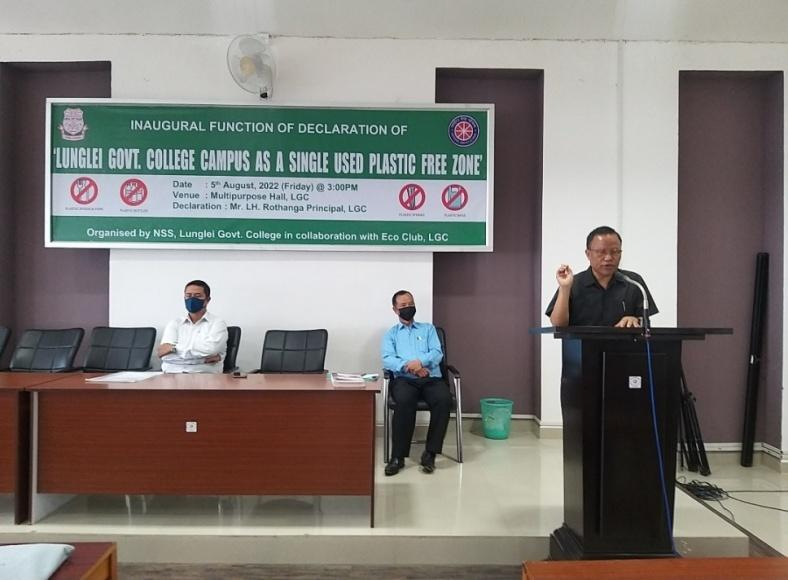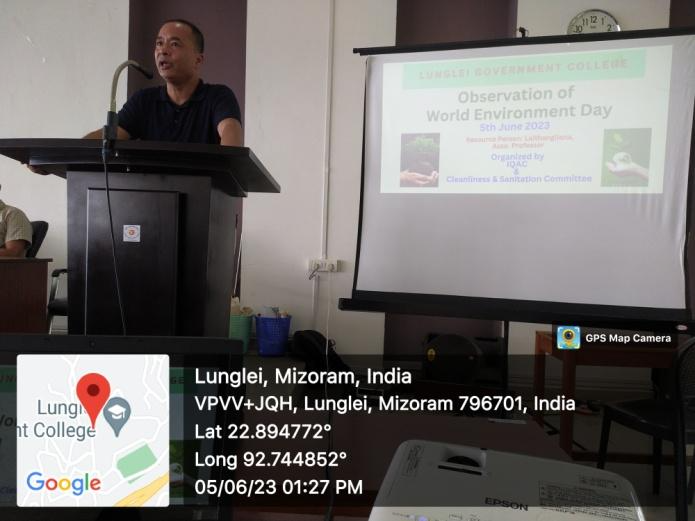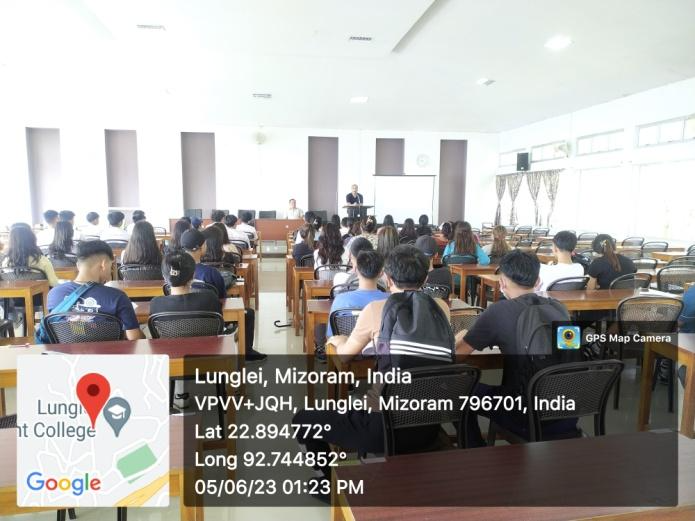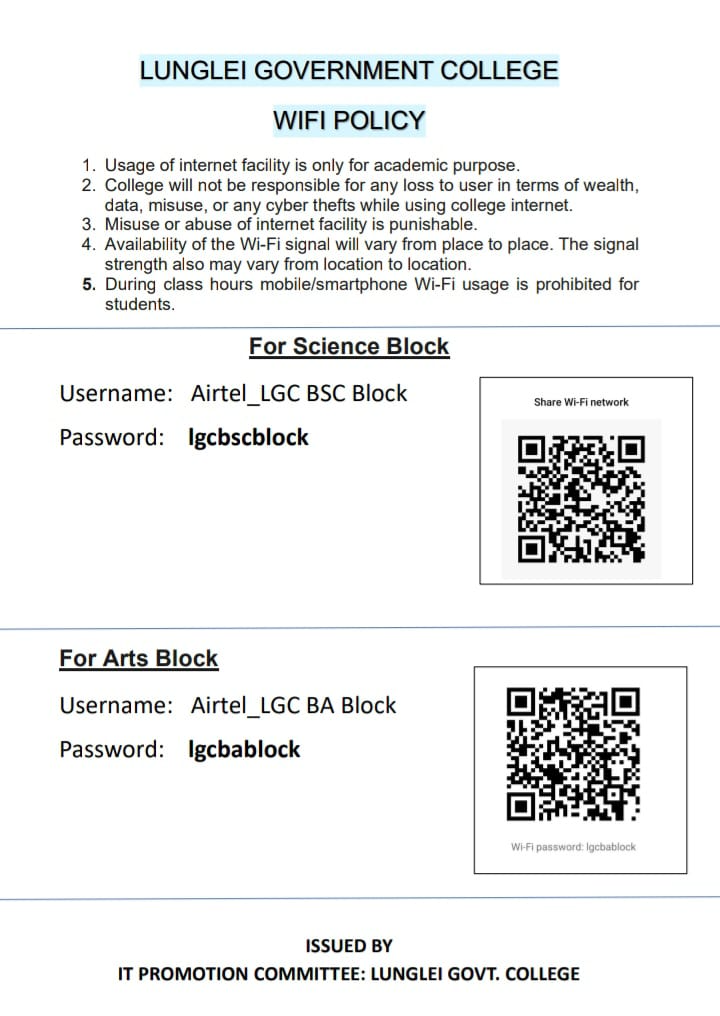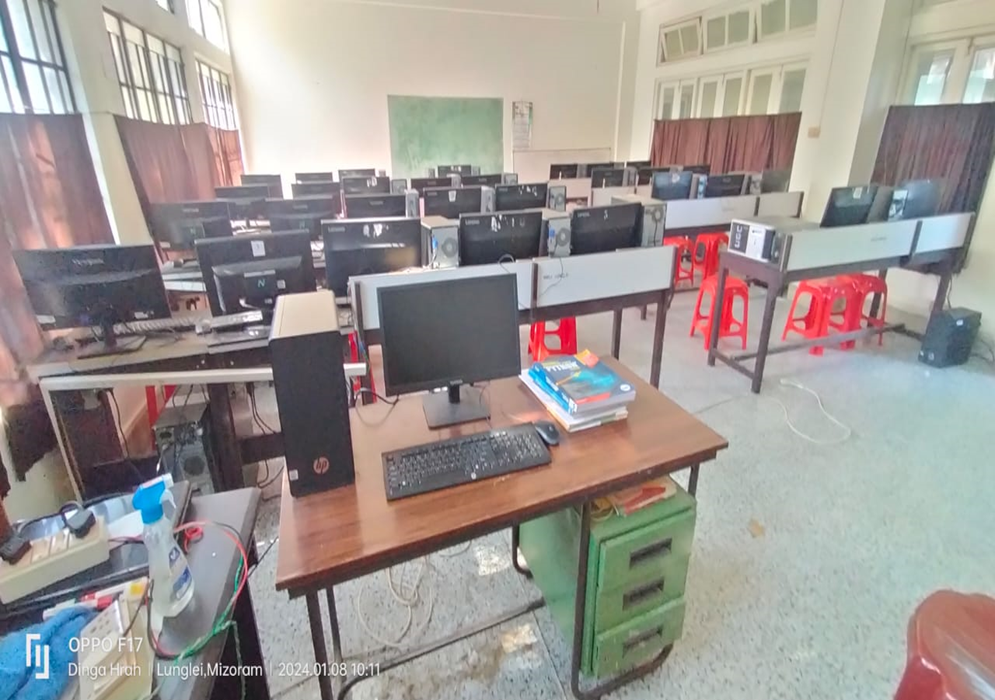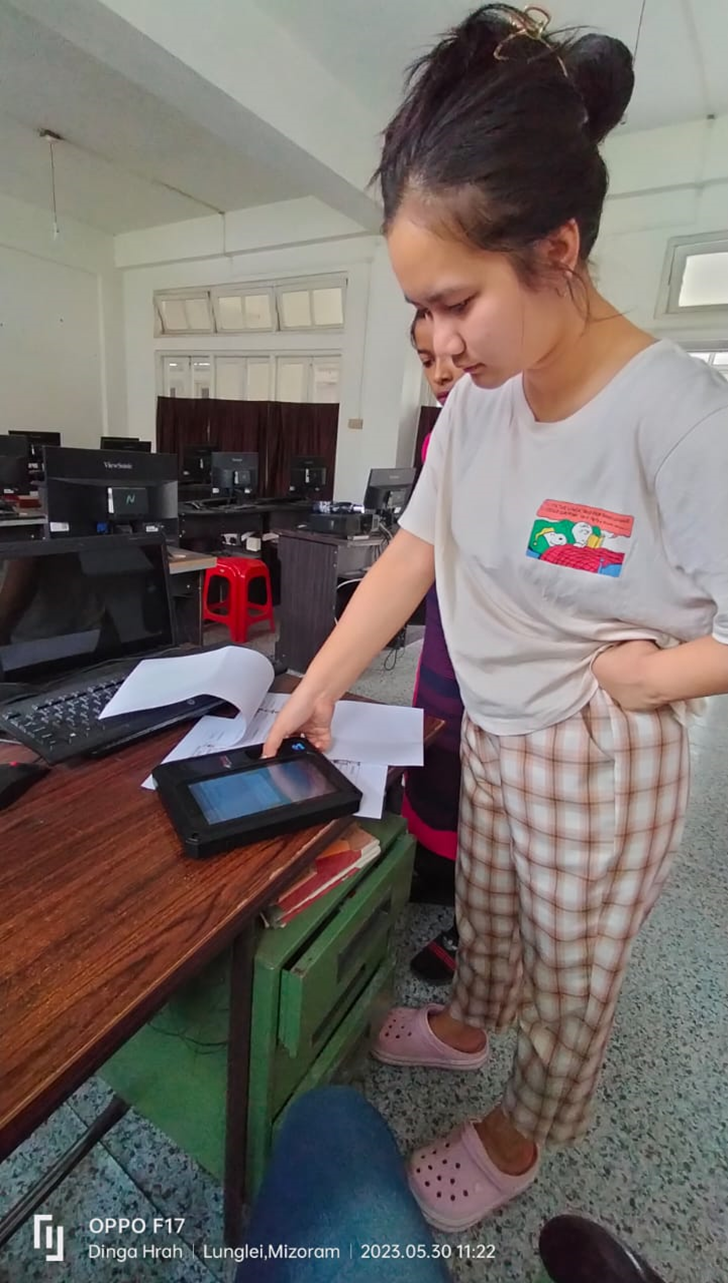Best Practice No. 1.
Title of Best practice: “Connecting All to Respect and Recreate Environment”
Objective:
1. Preservation of existing flora/fauna within the campus.
2. Creation of new green zones wherever possible, by planting tree saplings within the College campus.
3. Reduction in the amount of pollution in and around the College Campus.
4. Minimizing plastic usage.
5. Promotion of environmental awareness among all stakeholders of the College and society.
Context:
The population explosion and massive pollution at pace faster than can be controlled has prompted this practice. The need of the hour is a move towards sustainable development and towards the preservation and rejuvenation of resources for the survival of the future human race/generations. It is therefore imperative, not only that feasible policy decisions and workable strategic plans be chalked out, but that active participation be harnessed from the biggest stakeholders.
The Practice:
The Principal with assistance from the IQAC handpicks the Departments, Committees to perform this task in the beginning of the academic sessions. Instructions with perspective plans are given to the concerned Heads, Coordinators, Convenors and In-Charges. The designated authorities make the plans to execute various kinds of activities such as guest lectures by renowned environmentalists, awareness programmes, collection and distribution of tree saplings to the students, tree plantation drives, plastic usage reduction drives, activities, events to promote eco-friendly articles etc.
These authorities allocate the work to the teachers/students by assigning necessary groups as per requirements and instructing/training them accordingly. Teachers along with the assigned students execute the activities as per the plan and timetable and results are recorded.
Evidence of Success:
Tree plantation drives organized at various places in and around Lunglei have given the reports of survival of 71 distinct tree species, which highlights the incredibly good rate of success. New green zones have also been developed on the bare land by the process of systematic afforestation in association with NGOs. Systematic measures have also been taken to lower the temperature in the planted area, compared to the surrounding area.
Rainwater harvesting is practiced diligently to support the wild plantation in and around college campus. This has helped the institution to store modest amounts of water even during the dry seasons.
Problems Encountered and Resources required:
These green drives/initiatives, mandates the active participation of students. However, due to the placement of students at faraway locations from the campus, it has often been difficult to harness maximum numbers of students as most of our students are either hostel based with no independent means of transportations; especially given that these drives have to be conducted on days when classes are not conducted. Shortage of funds for student’s lunches have sometimes been a real challenge as the rate of inflation makes it unfeasible for the college to provide sufficient/healthy lunch.
1.Ban on Single used Plastic: (Dt.5.8.2022) - Awareness Campaign for Beat Plastic pollution conducted at College Multipurpose Hall and declaration of College Campus for Single used plastic free zone done, 315 volunteers ( M-145, F-170) attended the Awareness campaign. |
Dt.5.6.2023- Observance of World Environment Day (Awareness & Function) at Multipurpose Hall, LGC where 125 volunteers with 4 POs participated. |
Best Practice No. 2
Title of The Practice: “LGC Digi-Campus”
Objectives of the Practice
1. To support and simplify governance of institution.
2. To foster an environment of accountability and transparency.
3. To guarantee expeditious disposal of issues related to the stakeholders
4. To improve overall employee performance through digitalization.
5. To instill in the students a sense of ownership.
The Context:
The launch of Digital India Flagship Programme on July 1, 2015 is the rationale behind the initiation of “LGC Digi-Campus”. This project has positively and digitally impacted the students. The steady growth of students at HEIs (Higher Education Institutes) has borne the need to switch from manual system of admission to system based processing. Manual based processing system compels the storing of large amounts of irrelevant/outdated and redundant data.
The Practice:
Lunglei Government College subscribes to a 100 MBPS bandwidth internet connection with facilities for distributed networking infrastructure installed in the administrative office, the Science Block and the Arts Block. This gives the students and faculty of Lunglei Government College access to free Wifi. Conducting Online admissions became possible even during the Covid-19 restrictions through this digitalization process and also with the help of the “SBI Free College”.
Moreover, the availability of computer courses like “CCC” and “O level” through the NIELIT centre within the campus has also given easier access to computer courses by the students. Good numbers of students complete and graduate from these computer courses every year which would otherwise have cost them much as fees.
An Enterprise Resource Planning (ERP) system called HEREUS is utilized by the college. This ERP was introduced during the 2022-2023 session. This system is used for examination and administration purposes. Unique login IDs are created for all the students whereby they can access their attendances and CIA marks. The college has its own IG handle which is a virtual catalogue of all the activities of the college. Moreover, measures are being taken to upgrade and update the institutional YouTube channel.
Evidence of Success:
The success of the digitalization of the college has resulted in the reduction of workloads of the non-teaching staff, while also helping the students to become more techno-savvy. Admission processes have become easier; publication of results/lists of qualifying students for University exams have also become less time-consuming. Tracking long term absentees has also become much simpler. The costs borne from purchase of papers and the waste paper piles have also been drastically reduced. Students are now empowered to the point that they are able to successfully conduct “Virtual/Online Week”.
Problems Encountered and Resources Required:
The transition to new processes or technologies to address issues to adapt to change through training and communications always come with its own sets of resistance or challenges. These challenges faced include upgradation of new computer servers and annexed infrastructure for the implementation of the digitalized governance framework. There is also a dearth of competent technical staff. Unavailability of fast and reliable internet connection for the students is also one of the major challenges faced in digitalizing the campus.

